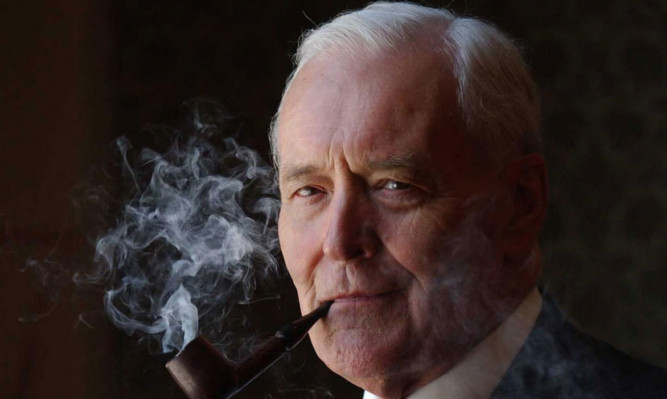
Veteran left-winger Tony Benn was at the Edinburgh Fringe last week to deliver his chilling verdict that “cynicism is the biggest enemy of modern democracy”.
It was a typically astute line from the former Labour cabinet minister who famously stood down as an MP to “spend more time on politics”.
He went on to tell a packed Assembly Rooms that at 88 years old, he felt “more than ever it was vital people simply didn’t give up on politics”.
But sadly voters are doing just that. Half of those eligible to vote in the 2011 Holyrood elections didn’t bother and last year’s council elections could only muster a turnout of 39.8%.
Political cynics have had plenty of fodder in recent years, from the expenses scandal to last week’s shameless attempt by the Tories and Lib Dems to swipe the £520,000 bequest left to the state by retired nurse Joan Edwards.
But amidst this bleak outlook are two projects in Scotland that give us a glimpse of a different way we could run our country and hold those in power to account.
The Electoral Reform Society (ERS) believes that only an increase in participation beyond simply just turning up to the polling station is the route to winning back voter trust.
“The ball is burst and I think the mainstream political parties are slowly beginning to realise this,” claims the ERS’s Scotland director Willie Sullivan.
“The way to stop this rot that has set into voter turnout is to actually get people genuinely participating in democracy.
“There is this myth we are well represented by the various elected politicians but it is nonsense.
“Voters have very little say in what actually goes on especially at a local level.”
The ERS will later this month present the findings of its inquiry that shows voters are fed up with the tight rein held by governments and councils and would like more involvement.
Public consultations are now largely tick-box exercises that result in decisions which rarely relate to the responses gathered.
Just ask anyone who has objected to a wind farm development in Scotland recently or the 64% of respondents who rejected the equal marriage plans currently going through parliament. One idea being put forward by the ERS is to have a second
chamber for Holyrood made up of ordinary voters.
Randomly selected citizens would serve a set term on this “National People’s Forum”.
The idea of greater voter involvement has been flirted with before with ideas such as Holyrood’s petitions committee. But greater innovations lie abroad.
In Finland successful public e-petitions bring about a parliamentary vote and in Norway the equivalent of community councils are in charge of healthcare spending town by town.
And in Iceland in the wake of the country’s financial meltdown a new constitution was created in an open approach which included releasing drafts on the internet and inviting criticism through social media and public meetings.
It was this collective approach which inspired the fledgling SoSayScotland movement to set up a National Citizens’ Assembly.
The group has been holding meetings where ordinary Scots map out the values they feel are important for the future of our nation.
SoSayScotland’s Susan Pettie is soon to present their findings. She explains: “What the project has shown is that if you get two people with different opinions then sitting them down and working through their respective arguments leads to better decisions being made.”
Consultations and talking shops are one thing. Acting on the results is another.
Next month the Scottish Government will unveil its community empowerment bill, designed to allow people a greater say on the world around them, including more rights for local groups to buy redundant public land and buildings.
It is a nod in the direction of a new inclusive politics which is needed to get Scots voting again.

Enjoy the convenience of having The Sunday Post delivered as a digital ePaper straight to your smartphone, tablet or computer.
Subscribe for only £5.49 a month and enjoy all the benefits of the printed paper as a digital replica.
Subscribe